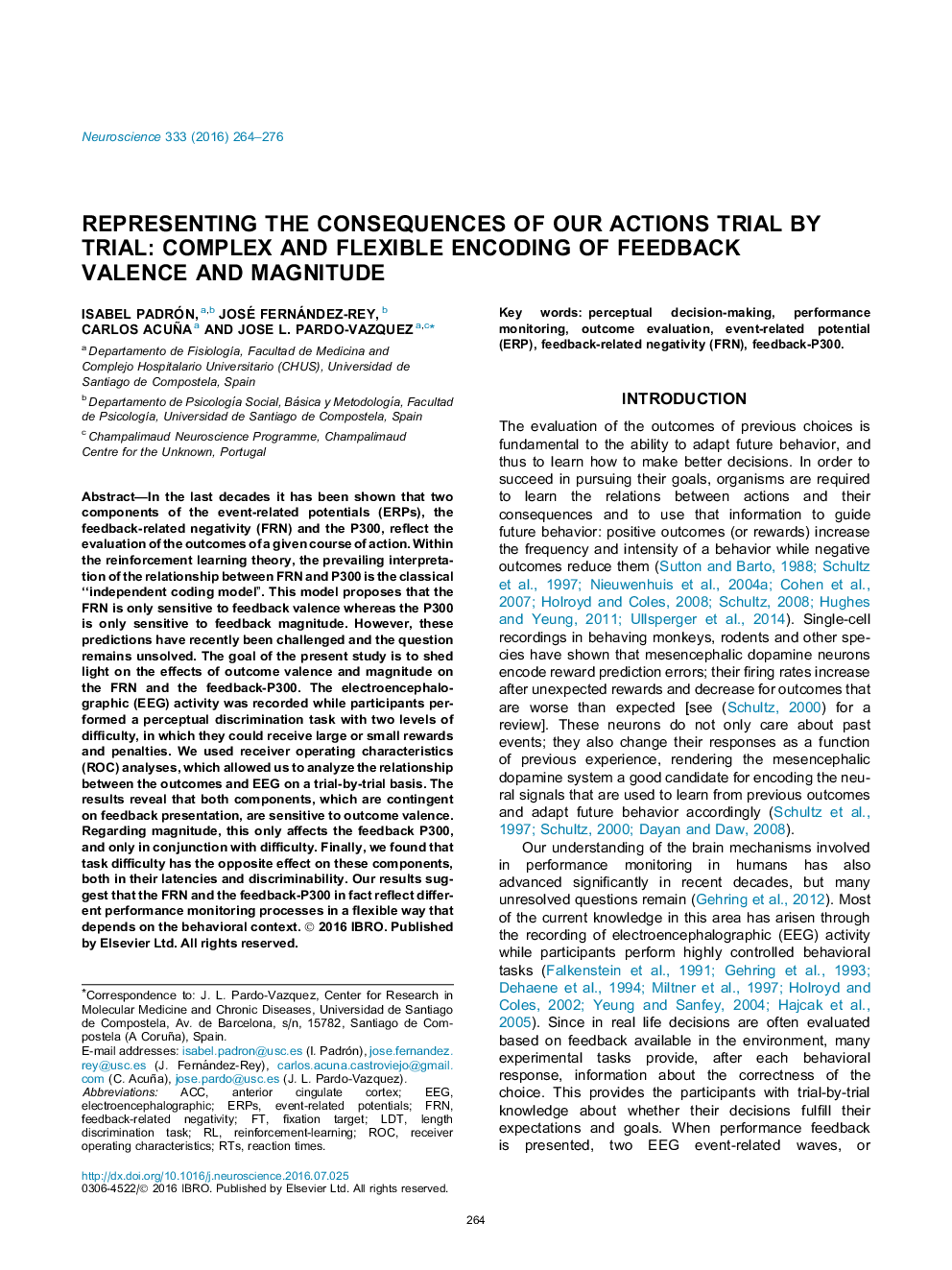| کد مقاله | کد نشریه | سال انتشار | مقاله انگلیسی | نسخه تمام متن |
|---|---|---|---|---|
| 6270856 | 1614743 | 2016 | 13 صفحه PDF | دانلود رایگان |
- Information about the outcomes is conveyed trial-by-trial by two evoked EEG waves.
- FRN and F-P300 are contingent with feedback presentation and sensitive to outcome valence.
- F-P300 is sensitive to outcome magnitude only in conjunction with task difficulty.
- Task difficulty has opposite effects on these components.
- FRN and F-P300 reflect different cognitive processes which depend on the behavioral context.
In the last decades it has been shown that two components of the event-related potentials (ERPs), the feedback-related negativity (FRN) and the P300, reflect the evaluation of the outcomes of a given course of action. Within the reinforcement learning theory, the prevailing interpretation of the relationship between FRN and P300 is the classical “independent coding model”. This model proposes that the FRN is only sensitive to feedback valence whereas the P300 is only sensitive to feedback magnitude. However, these predictions have recently been challenged and the question remains unsolved. The goal of the present study is to shed light on the effects of outcome valence and magnitude on the FRN and the feedback-P300. The electroencephalographic (EEG) activity was recorded while participants performed a perceptual discrimination task with two levels of difficulty, in which they could receive large or small rewards and penalties. We used receiver operating characteristics (ROC) analyses, which allowed us to analyze the relationship between the outcomes and EEG on a trial-by-trial basis. The results reveal that both components, which are contingent on feedback presentation, are sensitive to outcome valence. Regarding magnitude, this only affects the feedback P300, and only in conjunction with difficulty. Finally, we found that task difficulty has the opposite effect on these components, both in their latencies and discriminability. Our results suggest that the FRN and the feedback-P300 in fact reflect different performance monitoring processes in a flexible way that depends on the behavioral context.
Journal: Neuroscience - Volume 333, 1 October 2016, Pages 264-276
